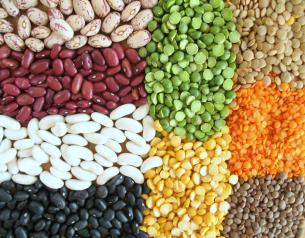
Refraining from eating kitniyot (legumes) on Pesah has always been an Ashkenazi minhag – that’s minhag (custom), not halachah (law). As you may know, Sefardi Jews (and most Israelis) never adopted this custom and have always eaten peas, beans, and their derivatives on Pesah, and no one would say that they are not following Jewish law. They simply have a different custom.
Over the years people have often raised the question with me of whether they might eat kitniyot on Pesah for health reasons, because it makes observing the holiday easier for vegetarians, because they have celiac disease and can’t eat gluten, and so on. I have always told them that they will not be violating halachah by eating kitniyot, nor will their Pesah dishes be made not kosher if they eat kitniyot on them. It is a matter of custom, and custom can be set aside for a good reason. And again, customs differ.
Recently, there seems to be a desire among some to assert not only that eating kitniyot is acceptable as a matter of halachahbut also that the custom of refraining from kitniyot is a minhag shtut – a foolish practice – and should be abandoned even by the Ashkenazi Jews who wish to follow it. We have seen this opinion reflected in some recent teshuvot (legal rulings) of the Conservative movement that have made the news. Although I have great respect for the rabbis who have written these teshuvot, I do not follow their logic. Although it may be true that the original reasons for the ban on kitniyot no longer apply (e.g., there is no longer a great chance of mixing up legumes with wheat or other grains because they are no longer stored in the same locations), the same is true for many matters of Jewish law and custom that have become meaningful to Jews in and of themselves. I still find the minhag of not eating kitniyot meaningful because it forces me to really change my diet on Pesah, not just to refrain from eating bread; otherwise, as a vegetarian, my diet could change very little. I see no reason to abandon a minhag I (and others) find meaningful simply because someone has decided that it does not make sense for them.
Unfortunately, I see in these opinions sad evidence of a growing problem in the Jewish world, which is an inability to acknowledge that someone else’s practice, while different from one’s own, is nonetheless legitimate and valid. This attitude of tolerance was a commonplace of the Jewish world for centuries, in which many different customs flourished among different Jewish communities and no one felt the need to insist that their custom and theirs alone should be adopted by all Jews. It seems that some Jews can no longer accept the diversity of Jewish practice and find it threatening in some way; “if my way is right then your way must be wrong.” By contrast, at GJC we are always striving to come to grips with our diversity and to acknowledge that our many different ways of praying, practicing, and living a Jewish life are all equally valid expressions of Jewish tradition. Our perspective is rare and may be growing rarer, and that is a loss for Jews and Jewish life.
Those who wish to hold by these new teshuvot and eat kitniyot will certainly be observing Pesah in a way that is consistent with Jewish law, as will those who hold to the custom of refraining from eating kitniyot. As it is taught about the opposing schools of Hillel and Shammai: “Eilu v’eilu divrei Elokim hayim – These and these are both the words of the living God.” I pray that we all stretch ourselves to hear those ancient voices of tolerance across diversity as we celebrate this season of liberation.
